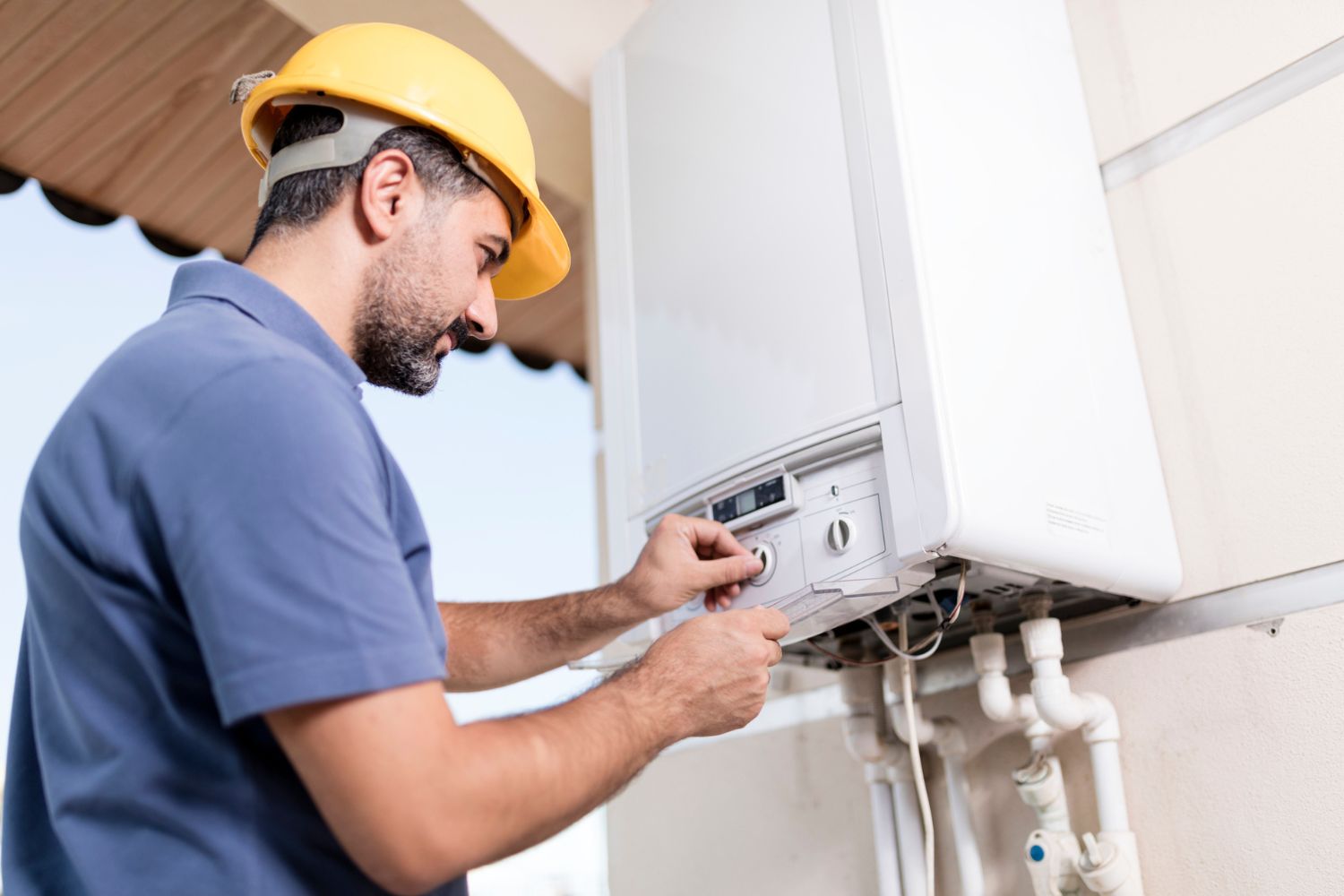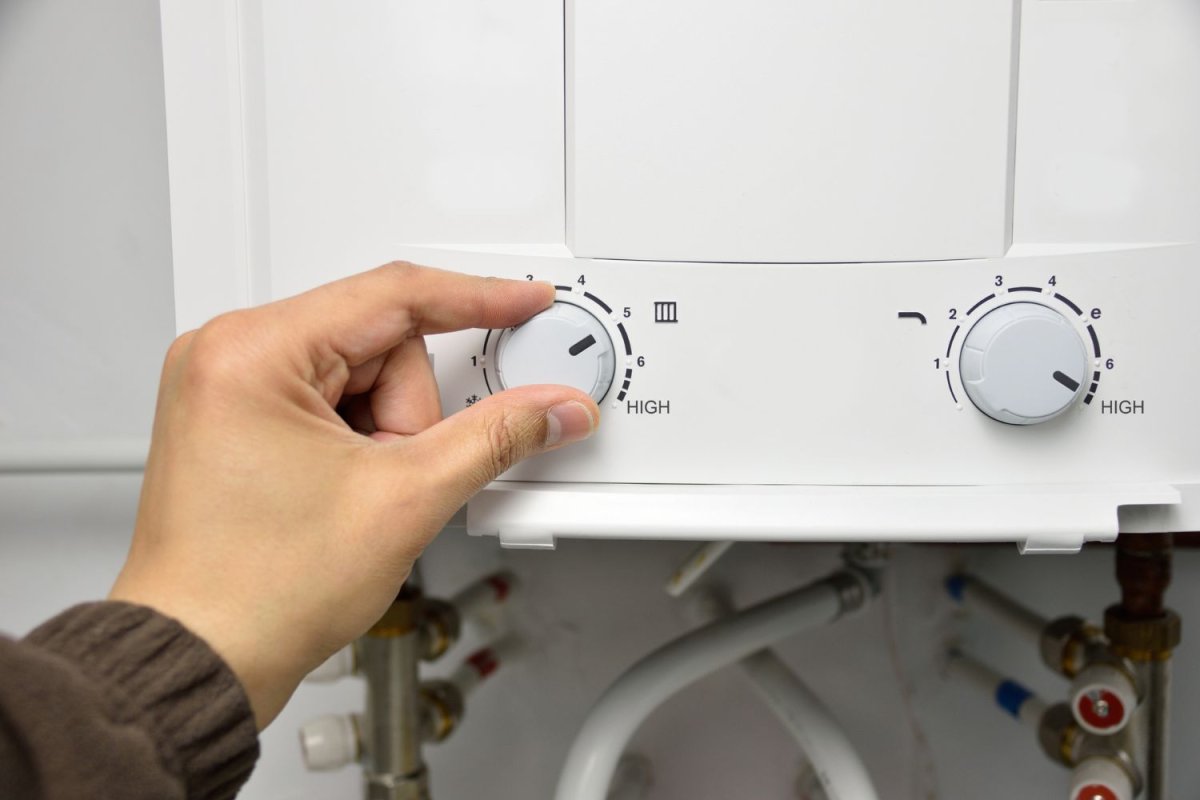We may earn revenue from the products available on this page and participate in affiliate programs. Learn More ›
Q: My water heater is leaking, and I think I need a new one. Who installs hot water heaters? Is this something I can tackle myself?
A: Water heater woes are no joke, regardless of whether you need a basic repair or a full-on replacement. When you need to know who installs water heaters, you can generally count on a licensed plumber to get the job done right. These professionals will be able to recommend a specific type of water heater based on the home’s needs and will be up to date on any local codes and permit requirements for the installation. Since this job can entail heavy lifting, proper draining, and water hookups, it’s best to hire someone instead of trying a DIY approach. From who fixes water heaters to how much you can expect to pay for a replacement, the guide below can help prepare you for the water heater replacement process.
Experienced, licensed plumbers can install water heaters.
When it’s time to replace a water heater, a licensed plumber is the best person to call. Whether a homeowner needs a simple replacement or wants to switch from a tank to a tankless water heater, a plumber will know exactly what tools and skills are required to install a new water heater. Plus, they’ll likely be up to speed on any permit requirements or unique codes that must be adhered to when putting a new water heater in a home. They can also remove the old unit and dispose of or recycle the tank so the homeowner doesn’t have to. Homeowners who are unfamiliar with local plumbers can search online for “water heater repair near me” for a list of reliable professionals in their area.
It takes about 2 to 3 hours to install a new water heater.
Although it’s not a complicated process, it may take a licensed plumber or professional appliance technician anywhere from 2 to 3 hours to put a new water heater in place. First, they’ll need to drain the water from the old model, disconnect the heater, and remove it entirely. Hot water tanks can be heavy, too, so this may take more time if the heater is located in an upstairs attic or utility closet.
Then, the new water heater will need to be put in place, which can take about 30 minutes. Once the heater is in place, the technician or plumber will likely take another hour or so to ensure the heater is hooked up correctly and functioning according to code. This process can take longer if the plumber does a tank-to-tankless installation since new power and water lines are required.

Water heater replacement costs an average of $1,200.
If the current water heater is on its last leg or is 10 to 15 years old, it may be time to start saving now for a replacement. Water heater replacement costs anywhere from $800 to $1,700, depending on the type and size of the water heater. Labor to install a water heater usually runs about $150 to $450, but that can increase to as much as $2,500 if a homeowner chooses to switch from a tank to a tankless water heater. Although they tend to cost more, tankless water heaters can last more than 20 years, so the expense will be compensated for over time.
If a homeowner doesn’t already have a plumber they know and trust, it may be wise to get at least three quotes to get a better idea of the average water heater cost in the area.
Upgrading a water heater to meet modern standards can be a more intensive project.
Depending on how old the current water heater is and the model it’s being replaced with, this project may require much more labor if the plumber needs to make upgrades to meet current standards and codes. If a homeowner is upgrading to a tankless gas water heater, for example, it will need to be retrofitted with new water lines, new gas lines, and a new ventilation system. While it may pay off over time, this is a much more expensive and extensive project up front, so it’s something to consider when deciding what type of water heater to install to replace an old one.
You can use the 50 percent rule to decide between repairing and replacing a water heater.
A newer water heater may need a simple repair to get it back in working condition, but it’s worth applying the 50 percent rule to make the best decision for the benefit of the home and its hot water. The 50 percent rule states that if a repair, whether minor or major, costs roughly 50 percent of what it would cost to replace the appliance, it’s better to get a new one.
For example, if a homeowner receives an estimate of $800 to repair the water heater, that is more than 50 percent of the cost of a new water heater, which averages about $1,200 to install. This rule can help make a decision that won’t cost extra time or money in the long run.
Newer water heaters are more efficient than older models.
The good news is that today’s water heaters are more energy efficient than older models. So whether a homeowner upgrades to a 50-gallon electric water heater or just a newer version of a previous model, they’ll get a water heater with higher heat retention, thanks to foam insulation that manufacturers place between the tank and its outer shell. Newer models, such as Rheem water heaters, are less prone to corrosion because of new glass liners. And since they are more efficient, new water heaters can also save as much as 20 percent in energy costs.


